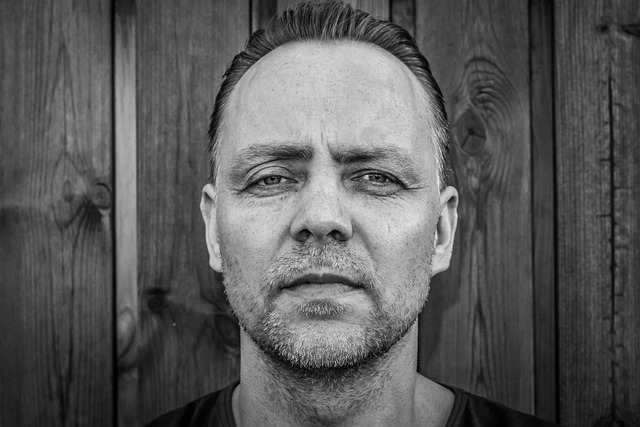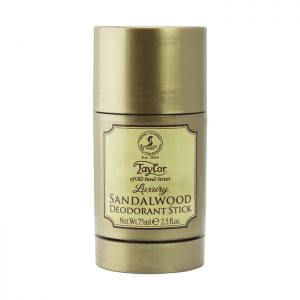A man’s diet is one of the most overlooked contributors to his beard health. While your beard’s shape and thickness largely come down to genetics, your eating habits can also have a significant impact on facial hair growth. In this guide, we’ll help you understand the connection between food and facial hair and review some key dietary adjustments to make.

The Science of Facial Hair Growth
Although you may treat your facial hair differently, it has the same makeup as the rest of your hair. Every single hair follicle has the same growing process, which starts at the roots underneath your skin. These “hair bulbs” frequently grow new cells that form new strands of hair, but only some of them poke through the epidermis and are visible to the naked eye.
On average, a hair strand should grow 1 centimeter per month, assuming the person has an active lifestyle and adequate diet. This number can differ based on factors such as gender, age and individual genetics. Most men between 15 and 30 years old are naturally at the upper end of the hair growth spectrum, thanks to their higher testosterone levels.
You could use beard oil to help the growth phase, but growth stimulants work best if you combine them with healthy and beneficial lifestyle choices. You must replenish your hair follicles with organic nutrients as well as hair care products if you want your beard to reach its full potential. That’s where your diet comes into play.
Testosterone-Boosting Foods
For most men, testosterone levels peak in their late teens and early twenties. That means their beards may experience a decline in thickness as they reach full maturity. If you’re experiencing this, you could get a natural testosterone boost by changing your eating habits. The following foods are excellent sources of testosterone:
- Spinach
- Beans
- Oysters
- Coconut
- Pumpkin seeds
- Fatty fish
Alternatively, you could take a testosterone booster supplement instead of changing your diet. These supplements directly raise your DHT levels and can lead to fast facial hair growth. However, there is a major risk involved if you’re prone to balding. A sudden spike of DHT can accelerate hair loss and make your beard look worse, not better.
In case you haven’t noticed the theme yet, it’s always best to take a natural approach over an artificial “quick fix” when it comes to your health. Improving your diet might have slower results, but it’s much better than taking hair growth supplements that could backfire in the future.
Daily Protein Intake
Protein is the key macronutrient that stimulates facial hair growth. Hair follicles primarily consist of keratin, the main protein structure that makes up skin, nails and internal organs. Getting frequent servings of beef, chicken, eggs and dairy products can help you maintain high keratin levels and healthy hair follicles.
High daily protein intake is also an important part of maintaining your peak testosterone levels as you get older. To prevent your skin from getting irritated and breaking out, apply a shaving cream or oil and use a straight razor when shaving.
Healthy Fats
Healthy fats are always unsaturated, which means they don’t create fatty acid deposits in your bloodstream. Instead, they remain liquid and flow through your bloodstream, providing much more nutritional value with none of the health risks.
Omega-3 fatty acids are particularly beneficial for facial hair growth because they strengthen your cell walls and keep your skin, nails and hair healthy. They can also work wonders for your cardiovascular system, which makes them more important as you get older.
Ideally, most of your healthy fats should come from seafood, which is an abundant source of omega-3 fatty acids and high in protein as well. Oysters, clams and crabs are great sources, and they may boost your testosterone in the process. Avocados, nuts and seeds are also viable options.
If allergies or dietary restrictions prevent you from eating seafood, you can also take a fish oil supplement. Fish oil has proven to help with hair growth by delaying the catagen phase and increasing the number of hairs in the anagen phase.
Vitamins and Minerals
Your diet must be rich in vitamins and minerals if you want healthy facial hair. Perhaps the most important nutrient worth mentioning is Vitamin D. Although the vitamin itself doesn’t lead to more hair growth, your body’s Vitamin D receptors help the skin produce more hair follicles and restore old hair growth.
Your facial hair will also benefit from a consistent supply of the following nutrients, vitamins and minerals:
- Vitamin A: This vitamin helps the skin produce stay moisturized and combat acne. Leafy greens and tomatoes are two good sources.
- Vitamin C: Plays a key role in the healing process of body tissue, including the skin and hair. Berries, oranges, lemons and potatoes are the main foods with this vitamin.
- Biotin: As a core ingredient in keratin production, biotin is the main protein that makes up your follicles. Bananas are the prime sources, but some rare berries have biotin as well.
- Zinc: Zinc is a useful nutrient that boosts immune system function. It’s plentiful in red meat, poultry and seafood.
- Iron: Iron is the main producer of hemoglobin, which is responsible for supplying organs with oxygen. Whole grains and beans are great sources.
Eating all of the foods mentioned above isn’t mandatory, but you should get a sufficient amount of fruits, vegetables and whole grains every day. There are also supplements available for virtually every nutrient. They will help you unlock your beard’s full potential and contribute to a much healthier lifestyle overall.
Healthy Diet, Healthy Beard
Eating the right foods won’t guarantee that you grow a full, luscious beard. Your genetics still determine whether you can grow a complete beard or not.
However, you can get the absolute most out of your facial hair by eating testosterone-boosting foods, increasing your daily protein intake, mixing in some healthy fats and getting your daily serving of key vitamins and minerals. A healthy diet ensures a healthy beard.

